Ubuntu in the Age of Human RightsUbuntu describes a set of universal moral principles guiding conduct that tends to preserve the integrity, stability and cohesion of a community through which its members enjoy identity, freedom and dignity for themselves and behave in a way that tends to promote the well-being of others.
Ubuntu is linked to the UN’s Sustainable Development Goals and their attainment. Ubuntu in the Age of Human Rights reveals and elaborates on the links between ubuntu and the SDGs. It will be updated annually, in line with emerging jurisprudence. In the coming years, this work will provide the global legal fraternity with substantial opportunities to enrich its own thinking by observing ubuntu where it is manifest in judicial decision-making generally. Each contribution addresses the challenges of reconciling the collectivity of ubuntu with the individuality of human rights, beginning with a systematic consideration of the concept of ubuntu and its application to water as human right and to climate justice. Subsequent volumes will address ubuntu and land, ubuntu and resource rights, and ubuntu and restorative justice.
0 Comments
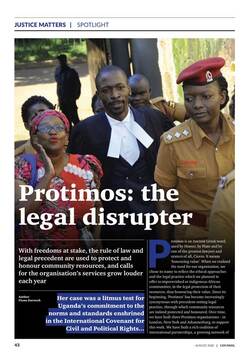 The August edition of Counsel magazine has profiled us under the heading, 'Protimos: the legal disrupter'.
We are pleased to confirm ROLE UK and the Department for International Development are the majority funders of Protimos' second Judicial Action Group (JAG) Colloquium.
The JAG is due to take place from the 15th to the 17th August 2018 in Victoria Falls, Zimbabwe. The conference will be held in the Elephant Hills Hotel, which is set on a small hill overlooking the Zambezi River, providing JAG members with a serene environment to discuss topics of their choosing. Proposed attendants include judges from across Africa, namely, Nigeria, Uganda, Mozambique, Egypt, Lesotho, Sierra Leone, Namibia, Malawi and Zimbabwe. The JAG is a peer-led group of senior African judges, convening to identify and discuss the problems that members of African judiciaries face and construct solutions to these problems. During the first JAG Colloquium, the main points of discussion were the group's objectives, values, the scope of activities and current issues. This December, Protimos is running an exciting new Festive Campaign.
We're raising awareness and funds for our Uvinje Project. We’ll be tweeting every day, bringing you information about the Uvinje community, as well as festive updates from our London office. We kicked off our campaign back in November with the launch of our newsletter on #GivingTuesday, an international day of giving. If you wish to donate to our Festive Campaign, head over to our JustGiving Campaign page… https://www.justgiving.com/campaigns/charity/protimoseducationaltrust/adventcampaign. Make sure to keep up with the campaign on Twitter (@Protimos)! 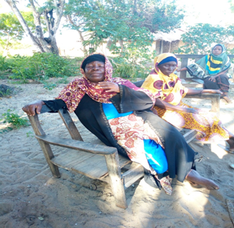 With Protimos' assistance, Tanzania's Commission for Human Rights and Good Governance (CHRAGG) has ruled that the Uvinje community’s assertion that they own the land which they occupy is correct. CHRAGG ruled that the Uvinje lands must be surveyed anew, and the correct boundaries, which the Uvinje community has always been maintained, clearly and accurately recorded. In its ground-breaking decision, CHRAGG found in May 2017 that, ‘the villagers had proved that they are the rightful owners of the land at Uvinje. The Uvinje lands have never been part of the Saadani Game Reserve, therefore their inclusion within the boundaries of National Park is unlawful.’ The Uvinje community were not provided with the ruling until August 2017, by which time government agencies had already visited Uvinje and told the community that it remained there unlawfully. In an interesting development, the government ministers making those assertions have now been dismissed. Protimos' sponsored barrister Jeremia Mtobesya has advised, 'if nothing is done within three months, to implement CHRAGG’s ruling, then under s28 of the CHRAGG Act which constituted CHRAGG, the Commission shall take action and appoint an independent officer to implement its ruling.' Mtobesya wrote to CHRAGG some weeks ago, to request that this action should now be taken by CHRAGG in the absence of the Tanzanian authorities' compliance with the CHRAGG ruling. CHRAGG responses are now anxiously awaited and are being pressed for, by Mtobesya. Mtobesya has warned us that the residents 'are still facing imminent danger … unless something is done immediately to arrest the situation, Uvinje residents stand to be forcefully evicted from their land in complete disregard of CHRAGG’s recommendations.’ CHRAGG’s clear and unequivocal recommendation is that the correct due process of law must be followed, in any proposed eviction, which can only be contemplated if it is ‘in the public interest’. This is a test which the Uvinje community will litigate over, if necessary. This litigation would be precedent setting for a large number of other communities facing eviction from their own lands. The next steps are crucial; we must be in a position to ensure the Uvinje community is prepared; if the community receives a notice of eviction, in a blatant disregard for CHRAGG’s ruling, it will be necessary to get an injunction. 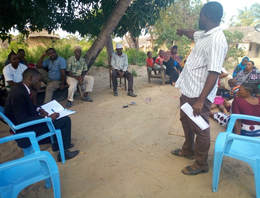 LHRC staff listen to Mr. Hussein Salehe Akida, Chairperson of the Uvinje sub-village LHRC staff listen to Mr. Hussein Salehe Akida, Chairperson of the Uvinje sub-village Protimos is continuing to help the threatened Uvinje village in their land rights dispute with the Tanzanian authorities. As part of our efforts, Protimos asked a Tanzanian human rights organisation, the Legal and Human Rights Centre (‘LHRC’), to visit the Uvinje sub-village. The LHRC’s visit was productive; the Uvinje villagers gave detailed interviews, describing both the Uvinje’s land claims and their experiences of the dispute. The residents then showed LHRC staff around the village and its surrounding land. The LHRC report describes the Uvinje residents as ‘living in fear and tension’. Yet there is no suggestion that the villagers are willing to accept compensation or in any way concede on this land rights issue: as the report states, ‘they are ready to die defending their very precious asset’. Protimos is deeply grateful to the LHRC for their thorough and valuable report. The information it contains will help the villagers in their pursuit of justice. The LHRC’s report can be found below. Please share it widely. To find out more about the LHRC, please visit http://www.humanrights.or.tz/.
Tanzanian authorities are proceeding with the eviction of the Uvinje despite the clear recommendations of the government ombudsman, the Tanzanian Commission for Human Rights and Good Governance (CHRAGG), that the Uvinje's claim to ownership of theirn ancestral land is legitimate. With the Tanzanian authorities flouting the proper means of dispute resolution, the international community is pursuing every possible avenue to stop the eviction of the Uvinje. As such, Protimos welcomes ICCA’s Consortium’s recent letter to the Tanzanian President, John Pombe Magufuli. The letter urges the President to ensure that the Uvinje’s case is treated fairly, with due respect for the Uvinje’s legal and human rights. The President has the power not only to halt the planned eviction, but also to begin the legal processes that would ensure that the Uvinje’s ownership of the land, as upheld by CHRAGG, is respected by other parties. This is the fifth letter concerning the Uvinje that the ICCA has sent to the Tanzanian premier (see below for previous letters from 2014, 2015, and 2016). Several themes emerge across the letters; the authorities’ confusion over the historical boundaries of the National Park, and the villagers’ steadfast determination to hold onto their land. It is encouraging to see organisations from across the world acting together in support of the Uvinje. To find out more about both the Uvinje and the steps Protimos is taking to help the villagers, click here. ICCA Consortium's first letter, August 2014 ICCA Consortium's second letter, February 2015 ICCA Consortium's third letter, May 2015 ICCA Consortium's fourth letter, January 2016 Protimos has recently been alerted to some alarming developments concerning the Government’s conduct towards the Uvinje villagers. Key parties in the Government of Mainland Tanzania including TANAPA, the wildlife authority, have now insisted that Uvinje villagers are unlawfully living within Sadani National Park and must leave the area within 28 days. No formal eviction notice has been delivered to the community. These parties claim that the Uvinje villagers ‘will understand that it is a National Reserve, and as a national reserve then it is about national interests, so every citizen has to cooperate so that the Government can make a clear investment’. Recently Tanzania’s Commission for Human Rights and Good Governance (CHRAGG) held that the designation of the Uvinje villagers land as being part of the Tanzanian National Park, by the Tanzanian Park Authority (TANAPA) was illegal. This was a ground-breaking and welcome decision for the Uvinje community. Among other things, CHRAGG ruled that the land did indeed belong to the Uvinje community, it is not part of the National Park, and that a new survey should now be conducted, showing the correct boundaries. CHRAGG also required that enquiries should be made to ascertain whether the compensation that is said to have been paid by TANAPA was really to the right people and done so according to the law. There is a legal procedure for TANAPA to follow, if it now wishes to appropriate the land, in which the public interest has to be satisfied, to justify any involuntary resettlement of the community. It is lengthy and detailed. Protimos is deeply concerned by this recent statement by the Tanzanian Government. It believes this to be a real and urgent illegal threat, to the Uvinje as lawful owners of the land. It is not yet clear whether official documents in relation to eviction have been issued to members of the Uvinje community. This situation is critical and time sensitive. From past experience in Tanzania, the eviction which is threatened may involve huge intimidation of the community by police forces, with bulldozers and lorries, in the early hours of the morning. Once the villagers are evicted and the land is fully in ‘possession’ of the state and/or other parties (external investors, for instance) then there is justifiable concern that the Uvinje community will lose this land, forever. Protimos hopes that an injunction will halt this process, particularly because the actions and decisions enacted by TANAPA and the Government are contrary to the findings of CHRAGG. The next steps are to use the recent CHRAGG ruling as justification for the Uvinje community to go to court, to contest the process by which it is claimed that Uvinje is part of the National Park, and obtain an injunction which will require TANAPA or any other government agency to use the correct legal processes in their approach towards the Uvinje community. Protimos is the only legal organisation that is currently supporting the Uvinje community’s local lawyer. As a small organisation, we are trying to enable Uvinje to keep using the law to assert their legal position. We urgently appeal to the wider community, in particular those committed to the Rule of Law, to add their support to the Uvinje legal cause. Please contact our Development Director, Laura Wilkinson directly for further information at: [email protected] Please see the full statement with background information on the Uvinje case in the file below: ‘I will never forget in all my life, the help Protimos gave us, and I hope, will continue to offer us… I find it hard to comprehend that people from so far away can be so kind and so caring about us, a small village in Tanzania’ – Hoseni Salehe Akida, Elected Chairman of Uvinje Following an investigation initiated with the help of Protimos, Tanzania’s Commission for Human Rights and Good Governance has held the involuntary resettlement of Uvinje villagers by the Tanzania National Park Authority (TANAPA) to be unconstitutional. Tanzania National Park Authority (TANAPA) had incorrectly claimed that the Uvinje people’s ancestral homeland was part of the Saadani National Park and so relocation was necessary. The Commission, however, ruled that TANAPA’s redrawn map fails to take into account the original boundaries agreed between the Tanzanian government and the Uvinje people in the 1970s. Moreover, the Uvinje villagers did not participate in any decision to expand the boundaries of the Park, as required by law. The Commission’s Opinion is a crucial victory in the fight to protect the land rights of the Uvinje villagers. The next step is to ensure that the correct Park boundaries are officially demarcated. The Protimos sponsored barrister is taking steps to ensure that a ruling commission has additional strength from a court order. The Uvinje legal team will also ensure that the Uvinje people have a voice in court if TANAPA try to reclaim the land in the future. Please see the Commission for Human Rights and Good Governance recommendations below. |
AuthorThe Protimos Team Archives
November 2023
Categories |
||||||||||||
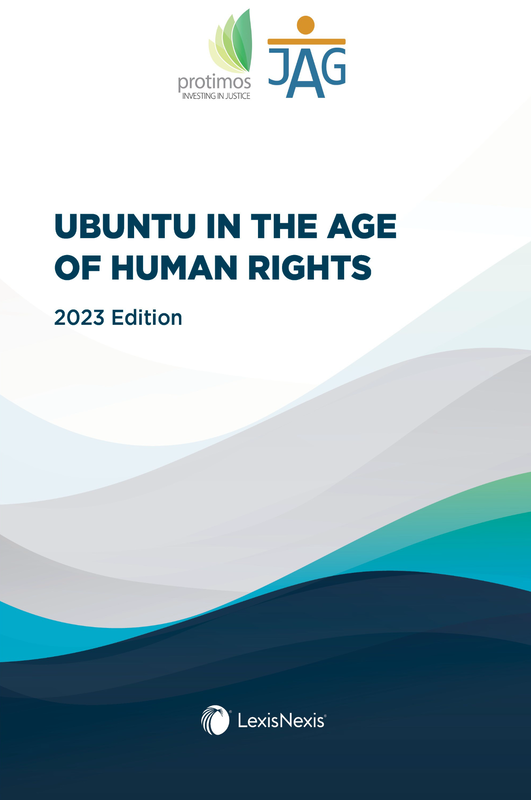
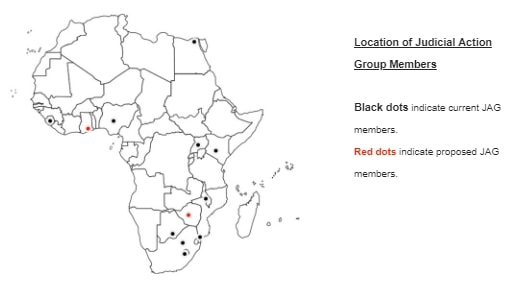

 RSS Feed
RSS Feed